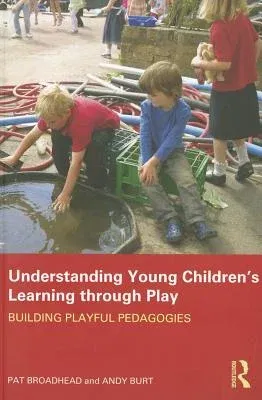This timely and accessible text introduces, theorises and practically
applies two important concepts which now underpin early years practice:
those of 'playful learning' and 'playful pedagogies'. Pat Broadhead and
Andy Burt draw upon filmed material, conversations with children,
reflection, observation, and parental and staff interviews, in their
longitudinal study of outdoor and indoor play environments in an early
years unit. This research-based text offers extensive insights into
related theories, as well drawing on the authors' skills and knowledge
as researcher and as class teacher in order to provide opportunities for
personal reflection and possibilities for practical application in early
years classes and settings.
Discussing both indoor and outdoor environments, the text explores ideas
surrounding 'open-ended play', and 'the whatever you want it to be
place'. It illustrates how the themes of children's play reflect their
interests, experiences, knowledge gained at home and in school, and
their cultural heritages. By showing how children become familiar and
skilful within open-ended play environments, the authors illustrate how
the children's co-operative skills develop over time as they become
connected in communities of learners. Alongside the examples of
children's playful learning, the book also considers the implications
for resourcing and organising playful settings through playful
pedagogies that connect with the Early Years Foundation Stage curriculum
(DfES 2007) and with the Tickell Review, ongoing as the book went to
press.
Understanding Young Children's Learning through Play uses children's
perspectives on their play to illustrate how rich their personal
understandings are. It also includes parental reflections on what may
initially appear a risky and unusual outdoor environment, and it draws
attention to the importance of conflict resolution in play in order to
extend children's resilience and assertiveness.
This insightful text will be of interest to students of early years
education, early years practitioners, academics and researchers.

